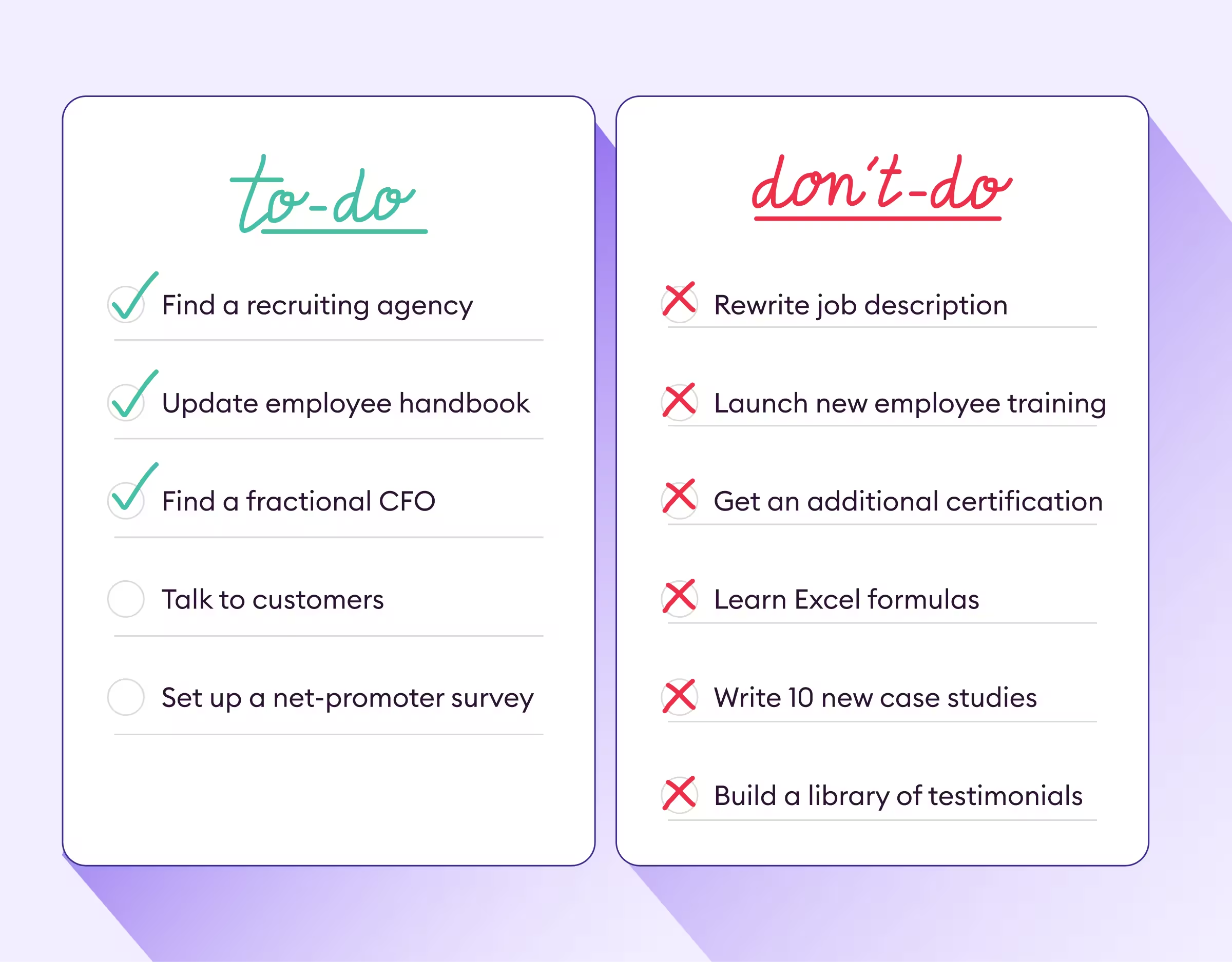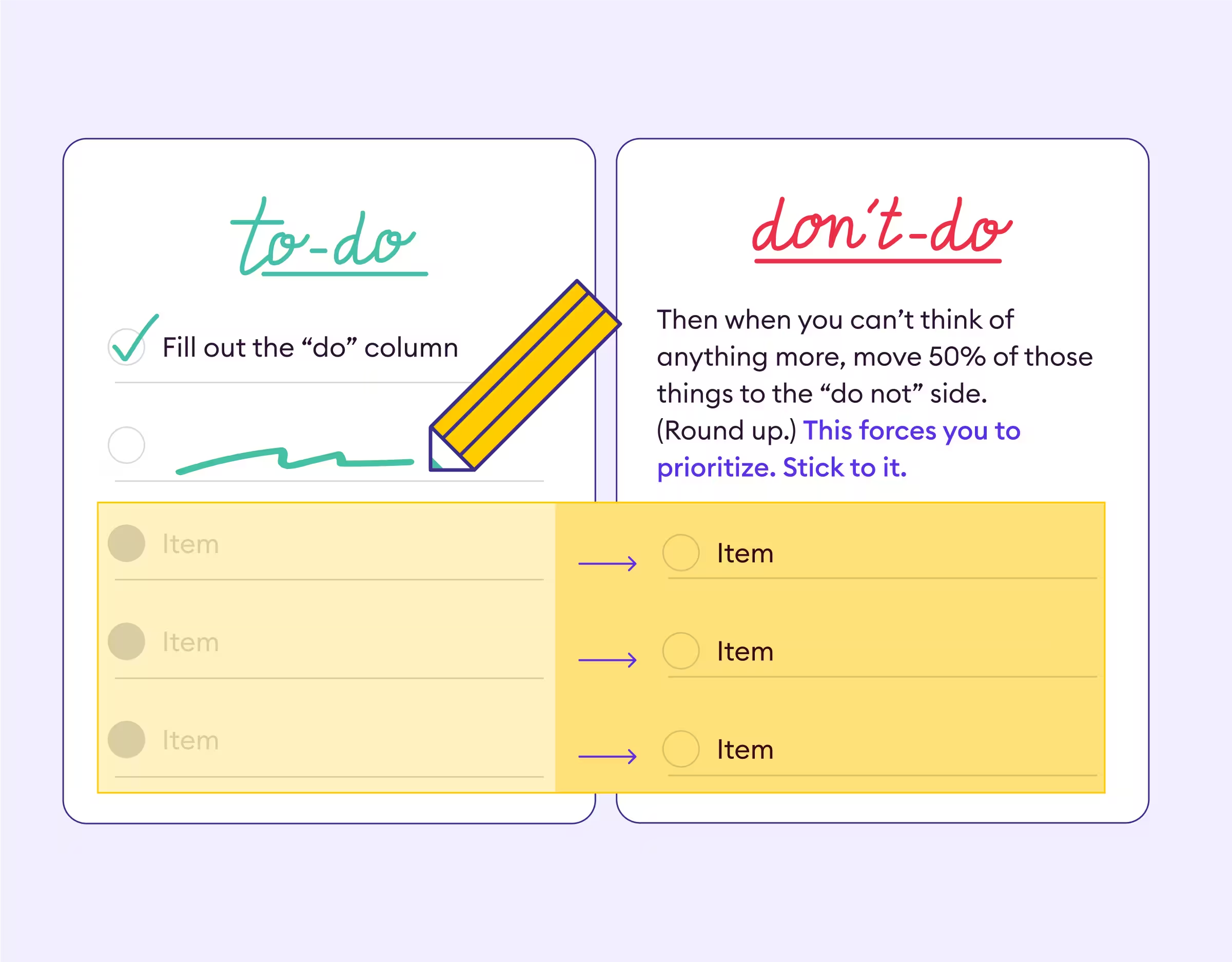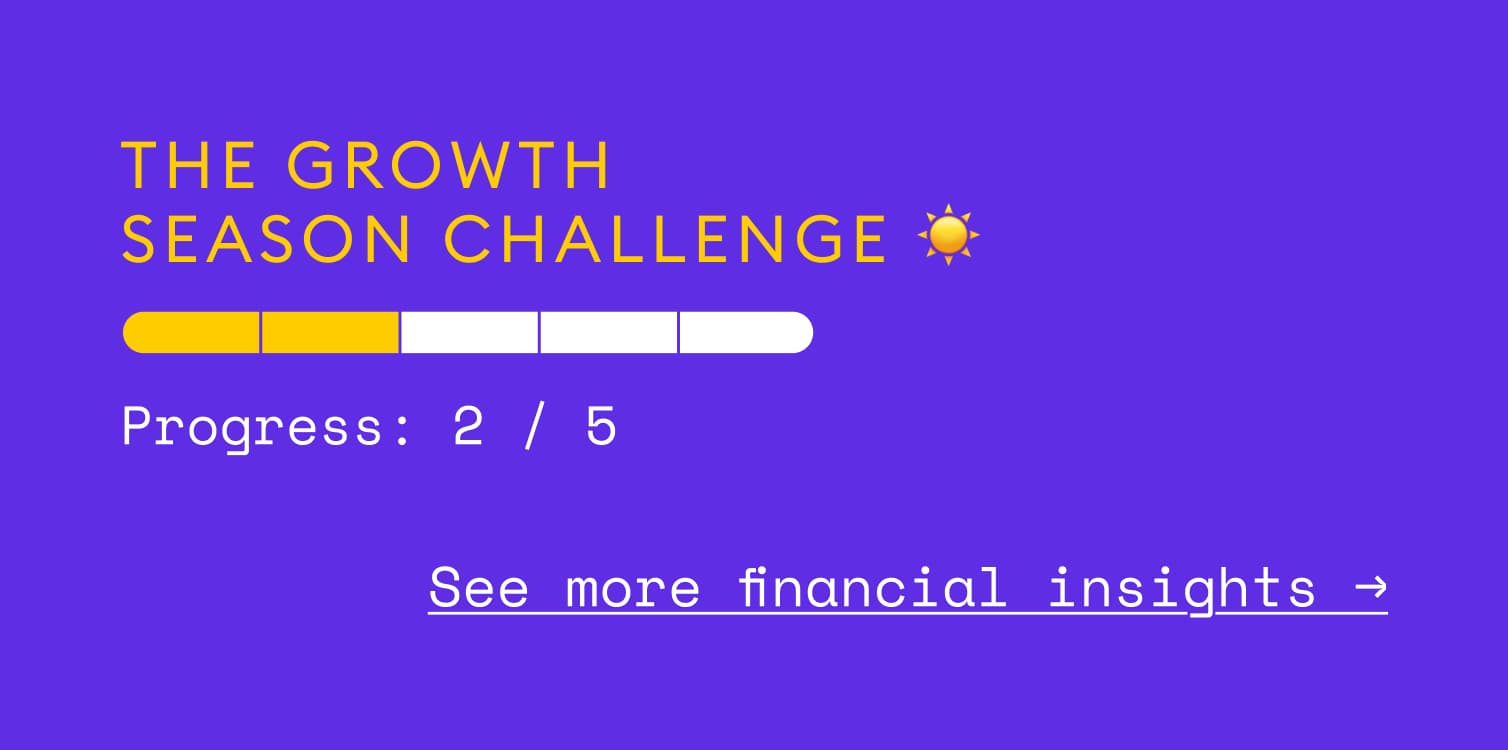The Growth Season Challenge—Activity 2: Why so busy?

Total time: 10 minutes
It’s late at night and Suhas gets a text from a client with one single word: “Hey.”
Suhas was about to fall asleep but now he’s bolt awake, worried. He texts back. The client doesn’t. Suhas stays up and barely sleeps.
The next morning, he’s up at 6 am anyway because as the owner of a boutique agency, he has a call with London. He skips lunch and is in constant motion checking on accounts and reviewing TV spots. In a normal week he puts in 70 hours.
Suhas says he wishes it was different. But after years, the work has never slowed. His partner doesn’t know how to answer when their daughter asks, “Why is daddy always so busy?”
The customer’s urgency is not your emergency
Welcome to the second activity in The Growth Season Challenge. Last week you rewrote your money story. Reread yours now. You know how money stories keep us locked into patterns? One of those patterns is thinking we can’t take a break.
Because here’s the truth: As a business owner, work will always consume as much of your time as you give it. It’s a monster, always hungry.
This is also exciting to realize! There is no “enough.” There never will be. Also, companies mold to their owners’ habits. Suhas’ team has adapted to relying on a version of him that is logged in all the time.
Let’s wind back the clock and pretend Suhas can start over again—but this time, he knows better. He never works more than 55 hours per week because after that, he knows his brain operates as if he is drunk. He stumbles, fumbles, and has to clean up his own mistakes the next day.
This time around, Suhas logs off at 5pm every day—earlier if he took a call with London. He silences notifications and doesn’t always respond to emergencies.
You know what happens?
The business forms around a healthy, balanced Suhas. Clients learn they won’t hear from him until the next day and they self-soothe. Employees learn to fix their own problems and have fewer questions over time.
Suhas now knows there is productive work and unproductive work. Unproductive work feels good in the moment, but is pointless. He learns to listen to his body. He gets good at building lists and in deciding what he can get away with not doing.
He manages a “Don’t do” list and simply doesn’t do those things.

Suhas knows that his not-to-do list forces him to prioritize. He can only do so much. What matters most? It isn’t the back-office financial work. So he fully outsources that. He hires someone to do his:
- Bookkeeping and QuickBooks
- Accounting and tax planning
- Reporting and financial planning
- HR and payroll
- Invoicing and collections
Somehow, miraculously, the business does even better with him spending less time. Suhas has built a business that works for his life.
Can you see a little bit of yourself in earlier Suhas? That’s okay. It means you're dedicated. Not everybody has that. But now, you have to train yourself to slow down. That’s when you’ll come across the opportunities that really matter.
Just like Suhas, who decided to not work on a plane flight and met a stranger who went on to acquire his agency. Now, he works zero hours per week.
Your one action today: Make a do/do-not list for today

If your “not-to-do” choices feel painful, you’re on the right path—this is part of being a smart business owner and knowing how to use your time wisely.
Next week, we explain how to charge more.
The Pilot Team

Would you recommend this course?





